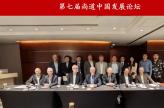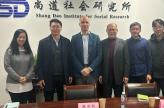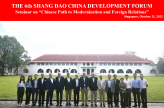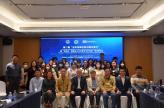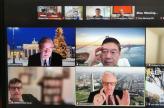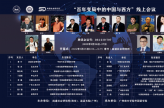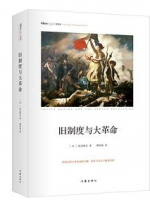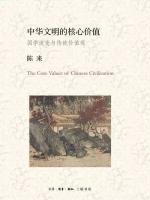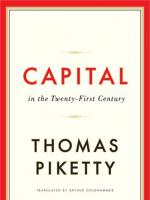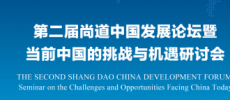博古睿:我为什么要给哲学家设一个“诺贝尔奖”
更新时间:2016-09-05 10:31:24 | 来源: 观察者网
物质是无法永存的-权力会易手,建筑会崩塌,人会死亡。但是思想、理论、世界观和民间故事则会代代相传。所有这些因素通过影响人类思想、整合大众才智和意愿来塑造世界。
从柏拉图、孔子,到在联合国教科文组织 (UNESCO) 成立大会上提出“和平与战争都源自人之思想”的奥登(W.H. Auden),思想的重要性被广泛认知且一路传承。尤瓦尔·赫拉利(Yuval Noah Harari)在其畅销书《人类简史》中更是直言,人类与其他物种最大的区别就在于,人类是唯一能够依据人权、金钱、神灵等抽象概念进行大规模合作的生物。
历史长河中,新的概念框架都源于想象,并在人类条件允许的时候影响现实世界。民主、道家、儒家、大革命、启示录、马列主义毛泽东思想、新政、存在主义、华盛顿共识、结构主义及生态学等等的例子不胜枚举。
不幸的是,当今的高等教育,往往是孤立于社会现状之外的象牙塔。而其内部由于缺少沟通进一步导致了各个学科之间的孤立。保罗·萨缪尔森(Paul Samuelson)曾经感叹,经济学往往被简化为用数学公式来预测股市的走向,哲学在很多大学中被削减成逻辑学。其后果是,应对合成生物学或者人工智能对人类文明所带来的挑战这一重大问题交由新闻媒体和小说家来回答。与大数据分析绑在一起的生物科学,加速了社会变革的步伐,逾越了千年以来所谓人类生活法则的界限——然而哲学界对这些人类仓促选择的未来发展方向所做的反思却少之又少。
在自然科学之外,尤其是人文科学方面,这一断链导致了各文化之间缺乏互动和沟通。世界最古老的的大学 — 印度的纳兰达大学(Nalanda University)— 得以重建的核心原因,就是希望本着重塑跨文明之间对话的精神,促进亚洲伟大哲学体系和宗教流派之间的交流。
世界最知名的旅行者及文字记者皮柯·伊耶(Pico Iyer),重申了这个担忧:“过去40年来,世界充斥着各种危机,让我不禁对世界越来越小的结论产生怀疑。恰恰相反,由于距离拉近和相熟的错觉,我们之间的鸿沟事实上在越变越大。在信息时代,我们很多人对于其他文化和观念的了解程度小于以往任何时刻。
百万美元的哲学奖
基于这样的使命召唤,博古睿研究院于2015年下设了哲学与文化中心。该中心旨在打破藩篱,整合荟萃西方和亚洲现有的研究和教学中心来研究不同文明的思想。其合作伙伴包括哈佛大学、斯坦福大学、纽约大学,牛津大学,剑桥大学,清华大学,北京大学等等。
此外,为了使重要的哲思能够冲破大众化信息,脆弱不堪的精英以及墨守成规的学术界的束缚,他们需要一个助产士,而博古睿哲学奖,就有意担任这个角色。
诺贝尔奖(Nobel Prize)涵盖了自然科学、文学以及和平等等领域。普利兹克奖(Pritzker Prize)涵盖了建筑等领域。然而,没有任何一个重大奖项是专注于对我们生命有着重大影响的思想所带来的贡献。
基于此,博古睿哲学奖(Berggruen Philosophy Prize)应运而生。该奖项将于2016年年底首次颁出,旨在奖励一位在世的,其思想理念对当今社会和未来生活都产生了深远影响的思想家。该奖项着重呼吁社会意识到伟大思想的重要性,激发人类从广度和深度上推动人文理念和社会科学创新。
博古睿哲学奖寻求的是古代“智慧之爱”所赞美的哲学,即不仅仅是对某种技能的掌握,而是对更深层的理念的不懈追求。技术、社会、和文化的变革之快常常导致人类很难用长远的眼光来看待和应对问题。因此,我们需要千古永流传的真理来指引我们的生活,无论这些真理是来自宗教界、世俗伦理、或是科学界。
当今时代,新科技和经济全球化对人类生活产生了前所未有的影响。因此,我们更迫切地需要回答一些根本问题,例如在科技的挑战下,如何重新定义人类以及在全球化媒体和金融的影响下,如何重新审视社区和国家的界限。不平等的加剧促使我们重新审视我们对弱势群体的责任与义务。气候变化的挑战使我们更好地意识到共享地球的重要性。
面对以上诸多问题,人类需要的不仅仅是技术进步和具体政策的制定,而是要进行深度批判性的思考以采取正确的行动。博古睿哲学奖致力于引导社会关注伟大思想,并且向伟大的思想家们致敬。
当然,需要承认的是,现今没有任何一个奖项能够拥有全球视野,并且冲破国界和东西方文明的藩篱。这一观点仅仅存在于由互联网即时联通的商业世界,以及当人类面临生存危机时,为确保种族延续所做的共同努力。
人类正在走进一个新纪元,一个由中东冲突而产生的数以万计的难民涌入欧洲心脏的时代;一个中国日益崛起的时代,股票市值初具雏形却反复波动或者经济和环境经受着节能减炭带来的冲击。当今世界,高效能机器人已经可以很好地取代传统劳动力。这对我们来说,是一个极为关键的时刻。我们要以更有延展性、更具想象力的方式在来思考人类面临的问题,而不仅仅是局限于当今缺乏活力的学习机制之下。
(Jennifer Bourne & Giselle Li翻译,翻页阅读英文原文)
What is least material most endures. Power changes hands, buildings crumble and people die. But ideas, paradigms, worldviews and narratives live on. They shape the world by cultivating the soul, organizing the intellect and animating the will.
This has been understood from Plato and Confucius up through W.H. Auden who eloquently noted at the founding of UNESCO in the wake of WWII that peace, like war, “is born in the minds of men.” In his recent best-selling book, “Sapiens,” Yuval Noah Harari argues that what distinguishes humankind from all other species is its ability for large-scale cooperation based on mental abstractions such as human rights, money or gods.
Throughout history new conceptual frameworks have arisen in the imagination and taken hold in the physical world when circumstances of the human condition warrant. Democracy. Daoism. Confucianism, The Reformation. The Enlightenment. Marxism-Leninism-Mao-tse Tung Thought. The New Deal. Existentialism. The Washington Consensus. Structuralism. Ecology.
Unfortunately, today, universities have too often become islands of wisdom separated from the mainland of society. They are then further divided within among the silos of disciplines that rarely communicate with each other. As the late Paul Samuelson lamented, economics has too often been reduced to mathematical formulas that calculate stock market movements. Philosophy has been whittled down in so many departments to formal logic, leaving media pundits and novelists to address the grand civilizational issues that arise from the new challenges of synthetic biology or artificial intelligence. Obversely, the biosciences, combined with Big Data analysis, are speeding up biological evolution to the pace of social change, transgressing the boundaries of what it has meant for millennia to be human – all with precious little philosophical reflection on the path humanity is heedlessly taking.
Outside the hard sciences, and especially in the humanities, this disconnection extends beyond to a lack of interaction and communication across cultures. The essential reason the first university in the world, at Nalanda in India has been refounded is to help resurrect this spirit of cross civilizational learning in a center where the great Asian philosophies and religions first crossed each other.
One of the world’s most inveterate travelers and literary journalists, Pico Iyer, echoes this concern. “Forty years of criss-crossing the world,” he says, “ has led me to suspect that the world isn’t growing smaller; if anything, the differences, the distances between us are growing greater than they’ve ever been, in part because of the illusion of closeness or familiarity . In the Age of Information, many of us know less about other perspectives and other cultures than ever before.”
A One Million Dollar Prize for Philosophy
With this kind of summons in mind, the Berggruen Institute is creating a Philosophy and Culture Center that is uniquely dedicated to breaking through barriers to understanding and cross ideas across civilizational realms. The new Center will collaborate with existing teaching and research institutions, both in the West and in Asia, among them Harvard, Stanford, Tsinghua and Cambridge universities.
In addition, for ideas that matter to rise above the cacophony in our age of democratized information, fractured elites and hidebound scholarly disciplines, they need a midwife. The Berggruen Philosophy Prize hopes to be such a midwife.
Nobel Prizes cover everything from the hard sciences to literature and peace. There is the Pritzker Prize for architecture and so on. But there is no prize that focuses on the contributions of thought per se, on the grand, foundational ideas that impact all our lives.
And certainly, there is no such prize that is global in scope, crossing boundaries and civilizational spheres between East and West -- a perspective itself only now possible in a world tied together by commerce, linked in real time by the Internet and the planetary reach of the media, and when the species as a whole faces the common challenge of preserving that narrow band of livable climate that has so far enabled our species, among others, to flourish.
Humankind is heading into a world where conflicts in the faraway Middle East precipitate the mass migration of hundreds of thousands of refugees to the heart of Europe; where the pace of China’s growth, the volatility of its fledgling stock market or the rate of its carbon emissions impact all economies and their environment. A world where highly-productive robots may well supplant gainful employment. It is high time to focus our minds on our fate in a more expansive and imaginative way than the hallowed confins our institutions of learning at present generally allow.
从柏拉图、孔子,到在联合国教科文组织 (UNESCO) 成立大会上提出“和平与战争都源自人之思想”的奥登(W.H. Auden),思想的重要性被广泛认知且一路传承。尤瓦尔·赫拉利(Yuval Noah Harari)在其畅销书《人类简史》中更是直言,人类与其他物种最大的区别就在于,人类是唯一能够依据人权、金钱、神灵等抽象概念进行大规模合作的生物。
历史长河中,新的概念框架都源于想象,并在人类条件允许的时候影响现实世界。民主、道家、儒家、大革命、启示录、马列主义毛泽东思想、新政、存在主义、华盛顿共识、结构主义及生态学等等的例子不胜枚举。
不幸的是,当今的高等教育,往往是孤立于社会现状之外的象牙塔。而其内部由于缺少沟通进一步导致了各个学科之间的孤立。保罗·萨缪尔森(Paul Samuelson)曾经感叹,经济学往往被简化为用数学公式来预测股市的走向,哲学在很多大学中被削减成逻辑学。其后果是,应对合成生物学或者人工智能对人类文明所带来的挑战这一重大问题交由新闻媒体和小说家来回答。与大数据分析绑在一起的生物科学,加速了社会变革的步伐,逾越了千年以来所谓人类生活法则的界限——然而哲学界对这些人类仓促选择的未来发展方向所做的反思却少之又少。
在自然科学之外,尤其是人文科学方面,这一断链导致了各文化之间缺乏互动和沟通。世界最古老的的大学 — 印度的纳兰达大学(Nalanda University)— 得以重建的核心原因,就是希望本着重塑跨文明之间对话的精神,促进亚洲伟大哲学体系和宗教流派之间的交流。
世界最知名的旅行者及文字记者皮柯·伊耶(Pico Iyer),重申了这个担忧:“过去40年来,世界充斥着各种危机,让我不禁对世界越来越小的结论产生怀疑。恰恰相反,由于距离拉近和相熟的错觉,我们之间的鸿沟事实上在越变越大。在信息时代,我们很多人对于其他文化和观念的了解程度小于以往任何时刻。
百万美元的哲学奖
基于这样的使命召唤,博古睿研究院于2015年下设了哲学与文化中心。该中心旨在打破藩篱,整合荟萃西方和亚洲现有的研究和教学中心来研究不同文明的思想。其合作伙伴包括哈佛大学、斯坦福大学、纽约大学,牛津大学,剑桥大学,清华大学,北京大学等等。
此外,为了使重要的哲思能够冲破大众化信息,脆弱不堪的精英以及墨守成规的学术界的束缚,他们需要一个助产士,而博古睿哲学奖,就有意担任这个角色。
诺贝尔奖(Nobel Prize)涵盖了自然科学、文学以及和平等等领域。普利兹克奖(Pritzker Prize)涵盖了建筑等领域。然而,没有任何一个重大奖项是专注于对我们生命有着重大影响的思想所带来的贡献。
基于此,博古睿哲学奖(Berggruen Philosophy Prize)应运而生。该奖项将于2016年年底首次颁出,旨在奖励一位在世的,其思想理念对当今社会和未来生活都产生了深远影响的思想家。该奖项着重呼吁社会意识到伟大思想的重要性,激发人类从广度和深度上推动人文理念和社会科学创新。
博古睿哲学奖寻求的是古代“智慧之爱”所赞美的哲学,即不仅仅是对某种技能的掌握,而是对更深层的理念的不懈追求。技术、社会、和文化的变革之快常常导致人类很难用长远的眼光来看待和应对问题。因此,我们需要千古永流传的真理来指引我们的生活,无论这些真理是来自宗教界、世俗伦理、或是科学界。
当今时代,新科技和经济全球化对人类生活产生了前所未有的影响。因此,我们更迫切地需要回答一些根本问题,例如在科技的挑战下,如何重新定义人类以及在全球化媒体和金融的影响下,如何重新审视社区和国家的界限。不平等的加剧促使我们重新审视我们对弱势群体的责任与义务。气候变化的挑战使我们更好地意识到共享地球的重要性。
面对以上诸多问题,人类需要的不仅仅是技术进步和具体政策的制定,而是要进行深度批判性的思考以采取正确的行动。博古睿哲学奖致力于引导社会关注伟大思想,并且向伟大的思想家们致敬。
当然,需要承认的是,现今没有任何一个奖项能够拥有全球视野,并且冲破国界和东西方文明的藩篱。这一观点仅仅存在于由互联网即时联通的商业世界,以及当人类面临生存危机时,为确保种族延续所做的共同努力。
人类正在走进一个新纪元,一个由中东冲突而产生的数以万计的难民涌入欧洲心脏的时代;一个中国日益崛起的时代,股票市值初具雏形却反复波动或者经济和环境经受着节能减炭带来的冲击。当今世界,高效能机器人已经可以很好地取代传统劳动力。这对我们来说,是一个极为关键的时刻。我们要以更有延展性、更具想象力的方式在来思考人类面临的问题,而不仅仅是局限于当今缺乏活力的学习机制之下。
(Jennifer Bourne & Giselle Li翻译,翻页阅读英文原文)
What is least material most endures. Power changes hands, buildings crumble and people die. But ideas, paradigms, worldviews and narratives live on. They shape the world by cultivating the soul, organizing the intellect and animating the will.
This has been understood from Plato and Confucius up through W.H. Auden who eloquently noted at the founding of UNESCO in the wake of WWII that peace, like war, “is born in the minds of men.” In his recent best-selling book, “Sapiens,” Yuval Noah Harari argues that what distinguishes humankind from all other species is its ability for large-scale cooperation based on mental abstractions such as human rights, money or gods.
Throughout history new conceptual frameworks have arisen in the imagination and taken hold in the physical world when circumstances of the human condition warrant. Democracy. Daoism. Confucianism, The Reformation. The Enlightenment. Marxism-Leninism-Mao-tse Tung Thought. The New Deal. Existentialism. The Washington Consensus. Structuralism. Ecology.
Unfortunately, today, universities have too often become islands of wisdom separated from the mainland of society. They are then further divided within among the silos of disciplines that rarely communicate with each other. As the late Paul Samuelson lamented, economics has too often been reduced to mathematical formulas that calculate stock market movements. Philosophy has been whittled down in so many departments to formal logic, leaving media pundits and novelists to address the grand civilizational issues that arise from the new challenges of synthetic biology or artificial intelligence. Obversely, the biosciences, combined with Big Data analysis, are speeding up biological evolution to the pace of social change, transgressing the boundaries of what it has meant for millennia to be human – all with precious little philosophical reflection on the path humanity is heedlessly taking.
Outside the hard sciences, and especially in the humanities, this disconnection extends beyond to a lack of interaction and communication across cultures. The essential reason the first university in the world, at Nalanda in India has been refounded is to help resurrect this spirit of cross civilizational learning in a center where the great Asian philosophies and religions first crossed each other.
One of the world’s most inveterate travelers and literary journalists, Pico Iyer, echoes this concern. “Forty years of criss-crossing the world,” he says, “ has led me to suspect that the world isn’t growing smaller; if anything, the differences, the distances between us are growing greater than they’ve ever been, in part because of the illusion of closeness or familiarity . In the Age of Information, many of us know less about other perspectives and other cultures than ever before.”
A One Million Dollar Prize for Philosophy
With this kind of summons in mind, the Berggruen Institute is creating a Philosophy and Culture Center that is uniquely dedicated to breaking through barriers to understanding and cross ideas across civilizational realms. The new Center will collaborate with existing teaching and research institutions, both in the West and in Asia, among them Harvard, Stanford, Tsinghua and Cambridge universities.
In addition, for ideas that matter to rise above the cacophony in our age of democratized information, fractured elites and hidebound scholarly disciplines, they need a midwife. The Berggruen Philosophy Prize hopes to be such a midwife.
Nobel Prizes cover everything from the hard sciences to literature and peace. There is the Pritzker Prize for architecture and so on. But there is no prize that focuses on the contributions of thought per se, on the grand, foundational ideas that impact all our lives.
And certainly, there is no such prize that is global in scope, crossing boundaries and civilizational spheres between East and West -- a perspective itself only now possible in a world tied together by commerce, linked in real time by the Internet and the planetary reach of the media, and when the species as a whole faces the common challenge of preserving that narrow band of livable climate that has so far enabled our species, among others, to flourish.
Humankind is heading into a world where conflicts in the faraway Middle East precipitate the mass migration of hundreds of thousands of refugees to the heart of Europe; where the pace of China’s growth, the volatility of its fledgling stock market or the rate of its carbon emissions impact all economies and their environment. A world where highly-productive robots may well supplant gainful employment. It is high time to focus our minds on our fate in a more expansive and imaginative way than the hallowed confins our institutions of learning at present generally allow.



